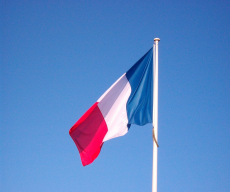
In two previous articles, I have written about Napoleon’s huge significance in terms of his creation of the Napoleonic Code and his stabilisation of France after the revolution. But what he was perhaps best known for in his day was his ground-breaking use of strategy and tactics as a general, which have arguably had a huge impact on the way in which wars and battles have been fought all the way up to the present day.
Napoleon separated the army into largely self-sufficient commands but he imposed firmer control over these dispersed commands and infused them with his faith in rapid movement offensives. Giving his commands far greater mobility made possible the swift concentration of force at a decisive point in a battle or a campaign and meant he could hit his enemy with full force before they could prepare themselves for it.
This focus in the fast mobilisation of troops in war was thought of as key even one hundred years later in the build-up to the First World War. This strongly reveals the impact of Napoleon’s strategy well after the French Empire, as it was in Napoleon’s time, had crumbled.
As Napoleon said himself, “The Art of War is simple; everything is a matter of execution.”
Another concept that dominated his actions was that make sure his army was as strong for battle as possible even if it meant leaving places undefended. He never delivered his army piecemeal, meaning that opposing forces couldn’t take out his army bit by bit. By the twentieth century, thanks at least in part to Napoleon, the idea of attacking an army piecemeal was no longer deemed sensible in most situations, but back in Napoleon’s time European generals were still using this inefficient tactic.
The last change Napoleon made I wish to mention – and one which revolutionised the French army’s chain of command and effectiveness - was the way in which people were promoted in the army. This is because he put people in important positions in the military not on the basis of their social class, but on the basis of their skill and success in battle.
This meritocratic model is the one used in many armies today. Yet in many European nations during Napoleon’s time it was the case that only men from the upper classes could become generals or high-ranking officers. It was practically impossible for anyone from the working classes to become a high-ranking officer in the British army. This meant that decent forces could be rendered useless due to the incompetence of an officer or general who didn’t really know what he was doing. Whereas Napoleon’s system ensured that those at the top were talented and knowledgeable in battle, giving his army a distinct advantage before a battle had even begun.
To sum up then, the way in which Napoleon organised his army and fought campaigns and battles has influenced how nations have fought wars for the last two hundred years, all the way up to the present day - and this is in spite of numerous technological advances over this period.
Image: By fdecomite (French Flag Uploaded by tm) [CC BY 2.0 (http://creativecommons.org/licenses/by/2.0)], via Wikimedia Commons

0 Comment:
Be the first one to comment on this article.